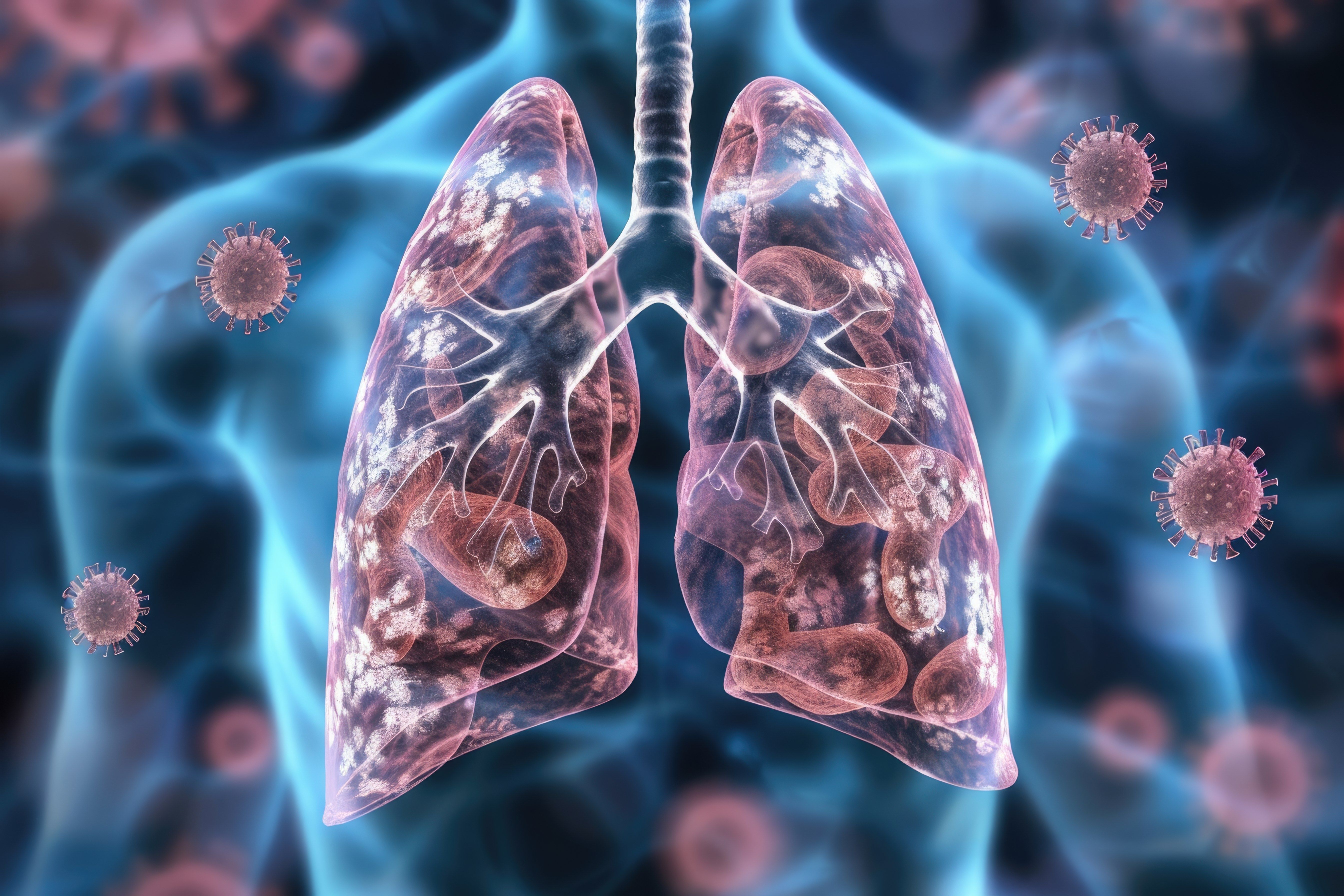- Center on Health Equity & Access
- Clinical
- Health Care Cost
- Health Care Delivery
- Insurance
- Policy
- Technology
- Value-Based Care
COVID-19 Infection Raises Myasthenia Gravis Exacerbation Risk, Study Finds
A new study shows that COVID-19 infection significantly increases the risk of exacerbation in patients with myasthenia gravis (MG).
A recent study at the Medical Center of Southwest China suggests that COVID-19 Omicron infection increases the risk of an exacerbation in patients with myasthenia gravis (MG). Published in Brain and Behavior, the study adds to the growing body of evidence that infections can significantly impact the risk of exacerbations in patients with autoimmune disorders like MG.1
Respiratory infections like COVID-19 are known to exacerbate MG | image credit: Vibu design gallery - stock.adobe.com

The observational study collected information on COVID-19 infections and exacerbations of 289 patients with MG during China’s widespread Omicron wave between December 2022 and early 2023. Patients in this cohort were predominantly female (60%), with an average age of 46. According to the study, 234 (80.9%) participants contracted COVID-19. The course of infection was generally mild, with 88% of COVID-19 cases classified as low severity (stages 1-3). Common symptoms included respiratory issues in 50% of infected patients and systemic symptoms like fatigue and headache in 74.4%.
“MG patients with COVID-19 infection exhibited a higher likelihood of exacerbation, compared to those without COVID-19 infection,” the study finds, with exacerbation rates recorded at 18.8% among infected patients versus 7.3% in the non-infected group (P = .039). After adjusting for confounding factors, the hazard ratio for exacerbation in patients with MG post-infection was found to be 3.38 (95% CI, 1.20–9.53; P = .021).
In infected patients, MG exacerbations developed quickly after contracting COVID-19, with a median onset time of just 14 days post-infection (interquartile range, 3-24 days). Exacerbations were evaluated based on changes in the Myasthenia Gravis Activities of Daily Living (MG-ADL) scale, with a worsening of at least 2 points considered an exacerbation. Exacerbations were found to be more severe among patients with MG who had comorbidities and those receiving immunosuppressive therapy, such as corticosteroids.
Most COVID-19 infections were primarily managed at home, but a few cases required hospitalization. Eight patients with COVID-19 infection (3.4%) developed respiratory failure that required mechanical ventilation, and 3 patients were admitted to the ICU. No deaths were reported within this cohort. However, 14.9% of patients experienced prolonged symptoms of fatigue, tiredness, and shortness of breath.
To further investigate the impact of COVID-19 on patients with MG, the researchers conducted a survival analysis comparing MG exacerbations in 2 time periods: December 1, 2022 to March 10, 2023 (DTM23), covering the Omicron wave, and January 2021 to April 2021 (JTA21), an earlier period without COVID-19 exposure. The comparison indicated an increase in exacerbations during the Omicron outbreak, with a recorded exacerbation rate of 17.2% in DTM23 compared to 4.4% in JTA21 (P < .001).
No statistically significant differences in COVID-19 vaccination rates were observed between infected and non-infected patients. Although COVID-19 vaccines effectively reduce severe illness, they may offer limited protection against infection with COVID-19 due to the development of unique variants.
Infection, particularly respiratory infections, has long been known as a trigger for MG exacerbation. This is supported by previous studies showing that viral infections like influenza can similarly increase exacerbation risk.2,3 The results of this study align with recent data from the COVID-19 Associated Risks and Effects in Myasthenia Gravis (CARE-MG) registry that suggests patients with MG infected with COVID-19 are more frequently hospitalized, experience increased disease exacerbations, and have higher mortality rates compared to the general COVID-19 population.4
It should be noted that in this study, COVID-19 diagnosis was not based strictly on laboratory tests but rather on typical COVID-19 symptoms. However, the study still adds insight into the increased risk of exacerbations after COVID-19 infection. The researchers suggest, “Developing new and precise protective vaccines would be particularly beneficial for MG patients, especially those on immunosuppressive therapy.”
References:
- Zhang N, Wang Z, Sun D, Chen H, Zhou H. The risk of exacerbation of myasthenia gravis after COVID-19 Omicron infection. Brain Behav. 2024;14(10). doi:10.1002/brb3.70074
- Kalita J, Kohat AK, Misra UK. Predictors of outcome of myasthenic crisis. Neurol Sci. 2014;35(7):1109-1114. doi:10.1007/s10072-014-1659-y
- Gummi RR, Kukulka NA, Deroche CB, Govindarajan R. Factors associated with acute exacerbations of myasthenia gravis. Muscle Nerve. 2019;60(6):693-699. doi:10.1002/mus.26689
- Muppidi S, Guptill JT, Jacob S, et al. COVID-19-associated risks and effects in myasthenia gravis (CARE-MG). Lancet Neurol. 2020;19(12):970-971. doi:10.1016/S1474-4422(20)30413-0
